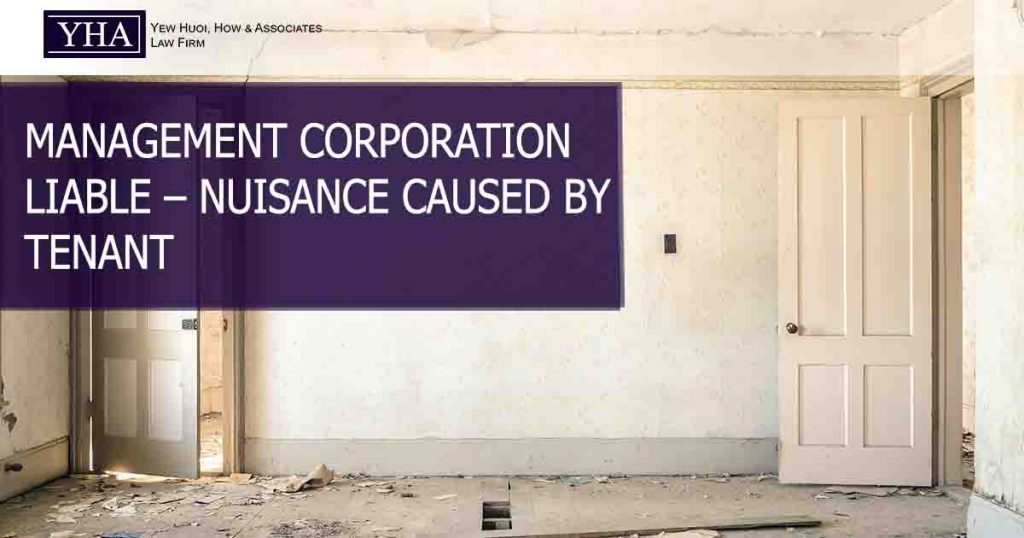Q: My neighbour rented out his condominium unit to university students. He partitioned his units and renovation works were carried out for a very long period of time. They often went on through the night and early hours of the day. This had affected my family and I so badly. The renovation too caused damage to my house. When the renovation stops, students moved in. The amount of people that would usually live in such a space doubled. The noise level was unbearable. We made complaints to the management corporation but nothing was done. What can I do?
You can make up a case for trespass and nuisance against your neighbour.
Trespass – Complaint on Renovation which Caused Damage
- STEP 1 – Lodge a complaint against the local authorities to investigate the damage caused by the renovation works. The local authorities will carry out investigation and issue letters to the respective parties.
The letters from the local authorities would be evidence that renovation was carried out and whether it was approved or not approved. If it is not approved, the local authorities will also issue notices instructing the respective parties to remove of the illegal renovation. - STEP 2 – Take pictures of the damage to your unit. Obtain expert witness eg. contractors to confirm the damage is caused by the renovation carried out by your neighbour.
- STEP 3 – If the damage persists or if no compliance is made by the neighbour, you may seek legal redress against your neigbour for trespass.
Trespass is actionable per se, without the need to prove special damages.
Nuisance – Complaint on Illegal Renovation and Unbearable Noise from Students
- STEP 1 – Lodge police reports and write to local authorities on the unbearable noise level and nuisance. Get the police to investigate. Identify the names of the investigating officers so that they can be later called to testify as witness.
- STEP 2 – Obtain record of noise in your unit such as video or audio recordings. However, there is no compulsory need for scientific or technical evidence that the noise generated was beyond tolerable levels. The test for private nuisance is whether the noise breached levels of tolerance of decent society and community.
Action against Management Corporation or JMB
Legal action may also be taken against the management under the Strata Management Act 2013. The Management has the duty to ensure there is no nuisance (See Para 8(3) of the 3rd Schedule of the Strata Management (Maintenance and Management) Regulations 2015.)

